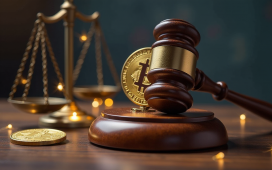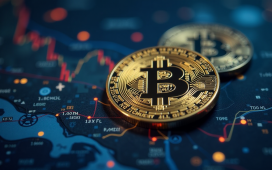
The Brazilian government is preparing to release a decree to fill the blank spaces that the recent approval of the cryptocurrency law has left open. The document, prepared by the Ministry of Finance, will establish the areas of oversight and responsibilities for the Central Bank of Brazil and the national securities regulator (CVM).
Brazilian Government to Issue New Crypto Regulation Decree
Members of the Brazilian government are working to extend the cryptocurrency rules established by the cryptocurrency law sanctioned on Dec. 21 by outgoing president Jair Bolsonaro. According to reports from local outlets, the Ministry of Finance is working on a decree to fill in the blanks that the general formulation of the law left unaddressed. The document will have to be reviewed by executive aides of president Luis Inacio “Lula” Da Silva before getting sanctioned.
The document is being prepared by Gabriel Galipolo, executive secretary of the Ministry of Finance, and by the secretary of economic reforms, Marcos Pinto, with the help of technicians from the Central Bank of Brazil and the national securities regulator. This decree will divide the responsibilities of cryptocurrency oversight between these two institutions, giving them clear items and market areas to attend to.
Incoming Dispositions
The new document will assign to the Central Bank of Brazil the task of organizing and supervising the behavior of cryptocurrency exchanges in Brazil, putting a special focus on checking they exercise due compliance with the rules described in the law. Virtual asset service providers (VASPs) will receive regulations similar to the ones banks have currently.
Meanwhile, the new definitions would put the Brazilian securities regulator on top of tokenized securities, analyzing if each tokenized asset constitutes a security. The organization will establish a new division dedicated to this task, the superintendence of digital assets.
This move is consistent with the statements that Expedito Netto, former rapporteur of the law, gave regarding the future of the law and the revisions that the government of Luis Inacio “Lula” Da Silva, the current president of Brazil, announced back in January.
The issue of asset segregation will be another important topic that the government will try to include in this decree. The subject, which implies that exchanges would have to separate their assets from the assets belonging to their users, was proposed when the bill was still in discussion. However, it failed to be part of the final law document due to disagreements in Congress.
What do you think about the new decree that the Brazilian government will issue to amend the recently approved cryptocurrency law? Tell us in the comment section below.
Image Credits: Shutterstock, Pixabay, Wiki Commons, Eduardo Rocha Paz / Shutterstock.com
Disclaimer: This article is for informational purposes only. It is not a direct offer or solicitation of an offer to buy or sell, or a recommendation or endorsement of any products, services, or companies. Bitcoin.com does not provide investment, tax, legal, or accounting advice. Neither the company nor the author is responsible, directly or indirectly, for any damage or loss caused or alleged to be caused by or in connection with the use of or reliance on any content, goods or services mentioned in this article.









